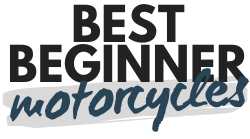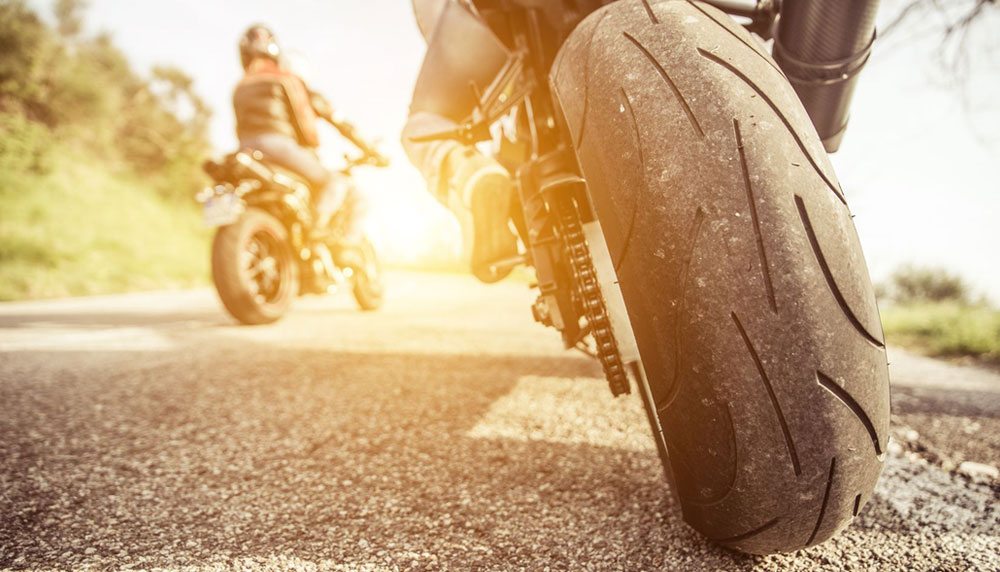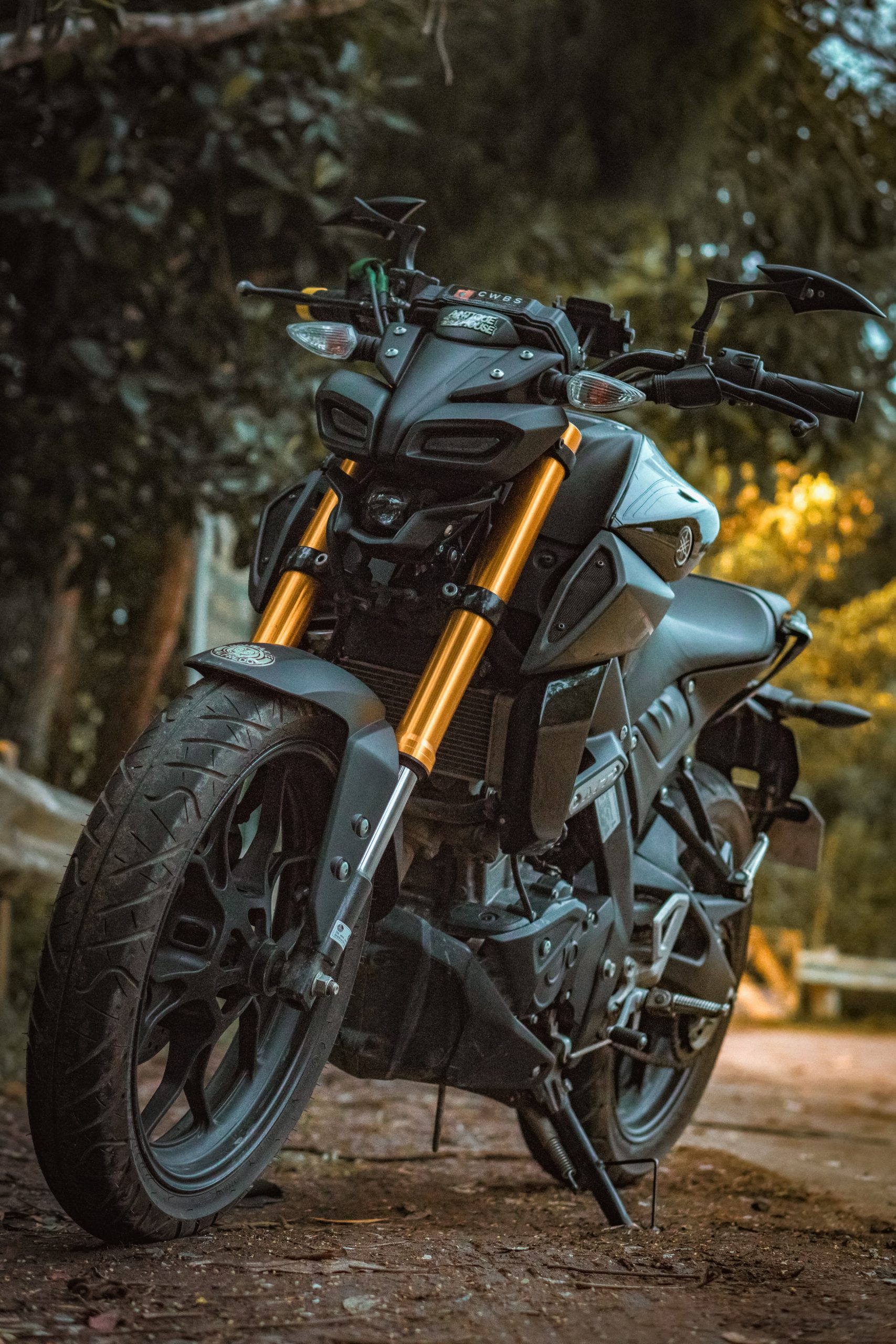Being A New Motorcycle Rider
When I first started riding motorcycles, in 1974, I was told two things I should always remember and which have served me very well over the years. The first thing was that I should ride like I was make of glass, for two reasons. One, it means I am invisible to the car drivers and, two, if I fall down, I could break into a million little pieces!
I will tell you the second thing in a minute. I have been thinking about my early years recently because I have found myself helping a number of new riders in the past year and that has gotten me thinking about the most important things I would want a new rider to know. These are in no particular order; they are all important in some way.
You can fall in love with a person
If you have not yet bought your first motorcycle, I have advised a number of people recently not to “fall in love” with a particular motorcycle. Do your research into what makes a good first motorcycle and look at a variety of bikes. If you decide to buy a used one, learn as much as you can about its history, ask if the owner if he or she has maintenance records for it (more on this in a minute), have someone who knows what they are doing check it out and take it for a test ride. If you have not been on the rider’s seat of a motorcycle before, I suggest that you sit on at least five or six different ones to learn how different they can feel and what feels good to you.
While you are in the process of looking for that first motorcycle, consider where you will keep it and how you will keep it secured. Think about who is going to do the maintenance on it. Whatever you get, you need to know everything that needs to be done to keep it running well, when it needs to be done, and get it done! If you get a used motorcycle, you need the owner’s manual and you need to read it cover to cover. If it does not come with the bike, it can be accessed on-line, but you need to get a hard copy from a dealer or another book source.
And do not be afraid or ashamed or anything to start with a 250 to 400cc motorcycle and move up to larger bikes as you gain experience (my first bike was a 175, then I went to a 350, then a 750 before I got the 1200 I ride now). Remember the second thing I was told when I started (Oh yea! I haven’t told you yet!). When it comes to gear, if you do not know what ATGATT means, it means “all the gear, all the time”. Yes, you wear a full-face helmet and armored jacket, even if the temperature is in the 90’s…and stay well hydrated.
Once you get that first motorcycle
If you are really new to motorcycles, I strongly recommend that you just sit on your new, or new-to-you, bike until you can operate all of the controls with your eyes closed. You need to learn to operate the controls without thinking about them; you will need your “conscious” thinking to look for hazards on the roads.
In your first month or so of riding, just ride around your neighborhood until you are very comfortable with your bike. Experienced riders will tell you that you are not riding a vehicle, the motorcycle should become an extension of your body and act like it is responding to your thoughts.
How to improve riding by reading
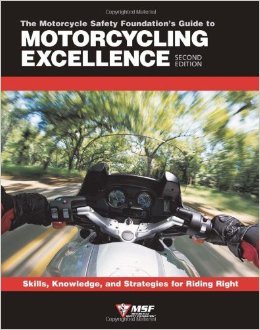
You should also be reading magazines on motorcycling in general and learn as much as you can about this wonderful culture you have joined. My favorite magazine, and web site, is Cycle World, which has been in publication for over 50 years.
Another wonderful source of information for a new rider is any responsible, friendly riding group. There are organizations and groups for every brand of motorcycle and, in some cases, for specific model lines. Join them, read their materials, and go to meetings. Good groups not only welcome new members, they welcome and help new riders. You will be able to learn all kinds of things that are not “in the books” and you can probably get help with maintenance and repair issues. If you can find a mentor in a group, even better. When you first start riding in the real world, it can be very beneficial to ride with a friend.
The best way to avoid a motorcycle crash
Once you have your own motorcycle, look up different kinds of practice maneuvers in books and on the internet, find an empty parking lot, and practice them! You need to learn to ride in a straight line very slowly, you need to learn how to make slow, tight turns (with your feet on the pegs), you need to learn to safely swerve around obstacles, and you need to learn to stop as quickly as possible from different speeds without locking up the wheels (I highly recommend anti-lock brakes. This should be a serious consideration when looking for your first bike, but make sure you get the bike that fits you in the greatest number of ways.).
Another thing I have recommended to new riders is to make you and your motorcycle as visible as possible. If your new ride has one headlight, check with a mechanic about adding extra lights. These can make you more visible from the front and make it safer to ride at night. Consider adding reflectors to the back of your bike and reflective tape to your helmet. You can also buy high visibility riding vests the will go over your jacket and/or buy a jacket with reflective stripes.
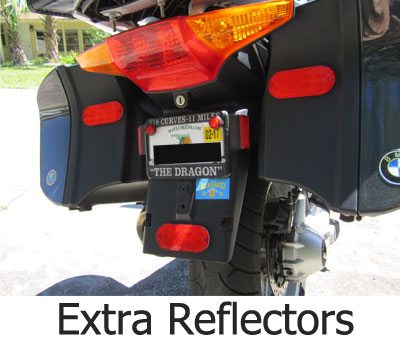
Make an entry every time you gas up (date, gallons put in, and odometer reading) and record every maintenance item that is performed.
Calculate your gas mileage on a regular basis. If you have work done by a shop, write it in your log and keep all the receipts and records.
All of these records will ultimately give you a lot of information about your bike and they will help you get a better price if/when you go to sell it.
After you have ridden those first six months
Please do not ever think you know it all. This article is meant to make you aware of things you need to learn. The truth is the more you learn, the more you realize you need to learn. Your next steps are to not only read the materials and contact the people I have mentioned, but remember what you read and hear, then gain experience by putting the things you learn into practice.
As you pass your first six months of riding and/or put several thousand miles on your bike, you should begin making plans to take an advanced riding course somewhere. There are people who have ridden over one million documented, accident-free miles on motorcycles. I will look forward to seeing your name on that list…right near mine! Work hard to ride safely, and that second thing I was told when I started?
There are old riders and there are bold riders, but there are no old, bold riders.
AUTHOR:
James ‘Jay’ Fierro: “I started riding in 1974, in Kansas, and rode between Manhattan and Fort Riley for the first year I owned a motorcycle. That bike was a 175cc two-stroke that was so old, the dealer in Manhattan had never seen one like it. (All four motorcycles I have ever owned were purchased used.) My second was a 350cc vertical twin that had grips that vibrated so badly, I could not ride it for more than about 30 minutes. I sold that and did not have a bike for way too long. About eleven years ago, I returned to riding by buying a K75 (750cc) BMW that was glass-smooth at all speeds. About six years ago, I bought a 2006 BMW R1200RT that I plan on riding until I cannot swing a leg over the saddle any more. I do most of my commuting on my RT but I have done some touring; my last road trip was from central Florida to the Dragon and back. I enjoy solo riding and riding with any size group and I really enjoy helping new riders in any way I can.”
